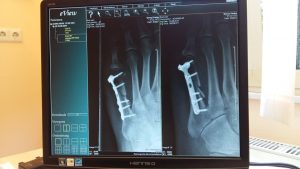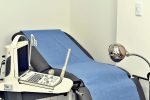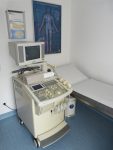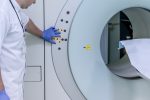
The whole world is experiencing a huge demand for healthcare workers, and medical imagers are not an exception.
The need for these professionals is consistently increasing, thus creating employment opportunities for individuals who are interested in, or who have already obtained, a two-year degree in this field.
If you are a person eager to get involved in medical imaging career, we have to offer you a short description of the top-paying fields that may be useful for you.
As we are aware of the fact that it is difficult to determine which medical imaging specialty is the right one for you, we decided to provide you with this guide so as to enable you to make the right decision.
It is our suggestion to have in mind your personal interests, skill level, educational opportunities, and availability of programs in your area when selecting a specialization.
Also, what has to be taken into account is the possible income upon graduation and job growth potential of the specialty you choose.
So, in our article, you will get familiar with the salaries of the top-paying medical imaging careers, as well as employment growth rates, job descriptions, and educational requirements.
Page Navigation
Medical Imaging Career Paths
With the development of technology, numerous modalities have arisen over the last few decades.
Discoveries have created many specialties within medical imaging and it is up to you to choose among these high paying careers.
We offer you data related to the top 5 paying medical imaging careers, ranked from highest to lowest:
- Radiation Therapists
- Median Annual Salary – $85,560, $41.14 per hour
- Job Growth Rate – 9%
- Educational Requirement: Minimum Associate’s degree, bachelor’s often preferred
- Nuclear Medicine Technologist
- Median Annual Salary – $77,950, $37.48 per hour
- Job Growth Rate – 7%
- Educational requirement: Associates or bachelor’s degree
- Diagnostic Medical Sonographer
- Median Annual Salary – $74,320, $35,73 per hour
- Job Growth Rate – 19%
- Educational requirement: Associates degree
- MRI/Radiologic Technologist
- Median Annual Salary – $62,280, $29.94 per hour
- Job Growth Rate – 9%
- Educational requirement: Associates degree
- Cardiovascular Technologist
- Median Annual Salary – $57,720
- Job Growth Rate – 7%
- Educational requirement: Associates degree
Radiation therapist
Radiation therapists are professionals who work closely with radiologists.
They are educated enough so that they are allowed to prescribe and administer radiation therapy, often for the treatment of cancer.
The radiation therapist is part of a major team whose aim is to treat and ultimately cure a patient’s disease.
Due to the nature of the disease, the radiation therapist has a duty to comfort and reassure the patient, so as to reach the successful implementation of the treatment.
Nuclear medicine technologist
Another very well paid medical imaging career is a nuclear medicine technologist.
In case you become one, you will be working closely with a supervising physician, and you will be allowed to administer radioactive compounds, called radiopharmaceuticals.
These professionals have huge responsibilities, including performing and analyzing imaging procedures using radiation-detecting equipment, which the physician will later use for diagnostic purposes.
So as to be successful in this field, a future nuclear medicine technologist has to possess excellent communication skills and attention to detail as well as a strong foundation in math.
Diagnostic medical sonographer
Diagnostic medical sonographers are known as ultrasound technicians.
This is the most common profession when medical imaging is in question.
These people use devices that emit high-frequency sound waves with the aim to produce images of unborn fetuses, internal organs, tissues, and muscles and determine the possible disease.
The use of ultrasound as a diagnostic and/or source of treatment has increased, thus causing the demand for ultrasound technicians to rise as well.
When it comes to job opportunities, most ultrasound technicians can look for a job in a hospital setting where they can expect to work 12-hour shifts.
Ultrasound techs must be capable of active physical exertion and able to lift up to 80 pounds so as to perform this job.
MRI / Radiologic technologist
MRI and radiologic technologists are professionals who are trained and educated to use imaging equipment that utilizes a magnetic field and radio waves to create images of the inside of a patient’s body.
Actually, their task is to place the large tubes in patients for an MRI, which are confining and loud, so this creates anxiety and claustrophobia in the patient, so the technologist is often required to listen to the patient’s concerns and fears and reassure them during this procedure.
Cardiovascular technologist
Cardiovascular technologists are able to perform both invasive and non-invasive procedures for patients.
Their main goal is to help monitor and diagnose diseases related to the heart or vascular system.
Future Cardiovascular technologists can choose among several specialties available, including cardiology technologists, vascular technologists, and cardiac sonographers.
However, our suggestion is to get familiar with the job duties for each specialty prior to deciding which one suits you best as they may vary.
It is also worth noting that pre-requisites for some of the above credentials may require more extensive professional experience and/or CMEs than others on the list.
The Importance of Accreditation
No matter which of the above mentioned medical imaging specialty you choose to pursue, the most significant thing is to attend a school that has been accredited by the Commission on Accreditation of Allied Health Education Programs (CAAHEP).
The accreditation proves the quality of the education that a school or program provides.
Becoming certified and maintaining certification through continued medical education (CME) courses is an important part of the education process, as these certificates are preferred or required by prospective employers.
Here are the primary certification organizations for each specialty that we have mentioned:








